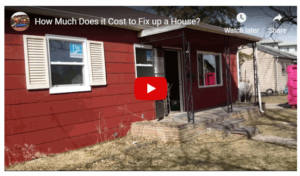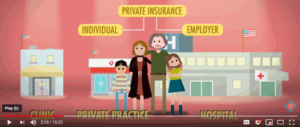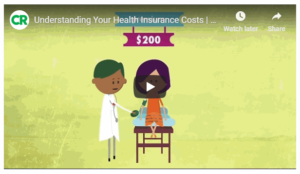How to Get Money Interest Free
By Tim McMahon |
Fun Money: 5 Hobbies You Can Turn into Extra Income
With technology advancing at the speed of light, it’s easier now than ever to take your hobbies and create them into a viable source of income or even some spending money. Using your hobbies as a way to earn extra money can be fun. It will ensure that you stay passionate about what you’re doing which will likely lead to being able to produce more and create a substantial side hustle.If you’re not sure which hobbies you can use to turn into extra income, here are five ideas that you can start with quickly and for a very low cost—with some of them not even costing anything extra!
Read More4 Tips for Staying on Top of Your Debt
Debt can be an effective means to an end (such as home ownership) but it does need to be managed. Experts like Robert Kiyosaki say that there are two types of debt “good debt” and “bad debt”. Good debt is debt that “puts money in your pocket” and bad debt “takes money out of your pocket”. Examples of good debt are loans to start a business, buy rental housing, etc. Bad debt is consumer loans and car loans. A home purchase is actually borderline because it is an asset and its value generally keeps up with inflation but it is more like a forced savings plan (that you have to maintain) rather than a good investment. In our article The Wealthy Buy Assets, the Poor Buy Liabilities, and the Middle Class Buy Liabilities Believing They Are Assets we discuss this in further detail.
Read MoreHarboring Some Junk? Useful Items You Can Sell for Quick Cash
Junk isn’t something that you need. It’s not something you want, either. Cash, however, is a whole other story, everyone likes to pick up a bit of extra cash. If you have junk, selling some of it can help you acquire cash and at the same time make it easier to keep your stuff organized and neat.
Read MoreFrugal Family: How to Save Money on Regular Home Maintenance
It’s much more relaxing to reside in a home that Isn’t constantly breaking down. In order to do so, you must put sufficient time and effort into giving it proper maintenance. However, maintenance doesn’t have to cost you an arm and a leg. If you want to reduce your routine home maintenance expenses, you should test out these avenues right away.
Read More4 Overlooked Financial Costs to Include in Your Family Budget
If you’ve read any of our articles you know that we believe that creating a family budget is critical to effectively managing your finances. This is especially true if you want to get out of credit card debt, since you need to be sure that your expenses don’t exceed your income. Unfortunately, many people create a budget and think everything is fine and then when the end of the month rolls around they still are “short”. This is often the result of “missed” expenses. Here are a few financial costs that are often overlooked:
Read MoreTime for a Change? 5 Tips for Home Renovating on a Budget
Sooner or later, you may get tired of the look or arrangement of your home or simply need to update. Of course, renovation can prove expensive… especially if you don’t manage the process with care. Here are a few tips for renovating on a budget.
Read MoreThink Ahead: 4 Steps You Can Take Now to Prevent Expensive Home Repairs Later
Home ownership can be a source of continual pride and happiness for both you and your family. However, even the most well-maintained home can also be accompanied by a multitude of costly home maintenance activities. In this article we will discuss several preemptive measures that you can take to avoid the most expensive types of home repair.
Read MoreRecovering from the Unexpected: 4 Tips for Financially Dealing with a Medical Condition
After you have a health issue, a lot of things change in your life. It comes with major stress and financial problems as well. However, although it may not be easy, if you don’t give up and instead take the right action, you can move past it over time. Here are four tips you should use to help you in dealing with the financial aspects of a medical condition:
Read MoreMake Extra Money while Going to College
College is expensive and can set the stage for debt payments for years and years to come. The average student today expects to rack up about $40,000 in student loans and believes it will take 10 years to pay off them off. According to U.S. News “The standard repayment plan for federal student loans puts borrowers on a 10-year track to pay off their debt, but research has shown the average bachelor’s degree holder takes 21 years to pay off his or her loans.”
The first step is to make every effort to not rack up the debt in the first place this can include things like going to Community College to get the basics first (at a much lower cost) and earning money while in college.
4 Ways You Can Reduce Healthcare Expenses
Even if you have insurance, medical care costs can be expensive. Many policies have deductibles and co-pays that you have to cover out of your own pocket. And to make matters worse health insurance costs themselves are increasing. As a matter of fact, health insurance costs are up over 40% since 2005 compared to overall prices being up “only” about 28% as you can see from this chart from InflationData.
Read More












